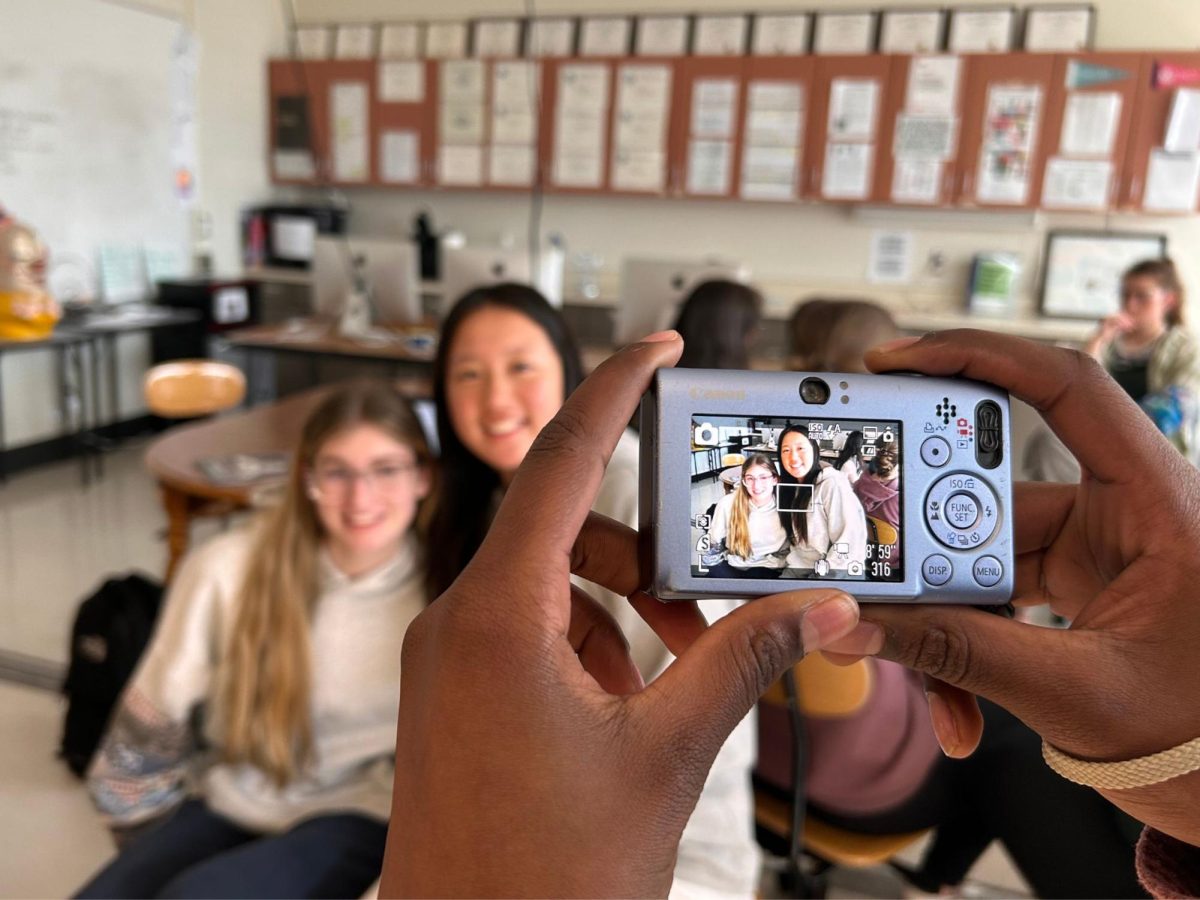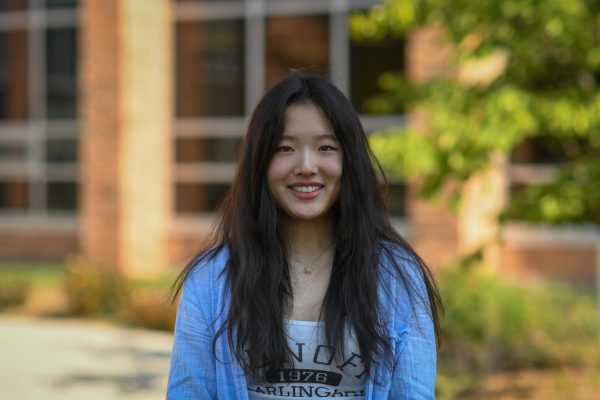Whether it’s counting piggy bank coins or depositing cash into a bank account, you might wonder… How do teens manage their money? There are typically three options: spend, save or invest. While approximately 87% of teens consider saving money a priority, only 42% have savings accounts, with the majority relying on cash for both saving and spending. Similarly, while 75% of teens agree that investing is important, fewer than 23% actively invest. This dichotomy between words and actions presents a concern: many teens lack the financial savviness necessary for adulthood.
Emily Hudachek ’16, West’s Personal Finance teacher, displays an “adulting is hard” poster in her classroom. Her poster, describing a broad statement of the challenges of adulthood, also represents a pillar of her teaching philosophy. Hudachek — believing personal finance is where students “learn to adult” — strives to create an accessible financial literacy curriculum.
“I’m a believer in Personal Finance [because] it gets students off on the right foot. Every single thing we talk about in Personal Finance is something you will use at some point in your life,” Hudachek said. “I always tell [students on] the first day in Personal Finance: ‘I’ve never found a legal way to get out of paying taxes, but I have found strategies to make paying taxes less difficult.’”
For many teens, finance seems like something only considered in adulthood. However, with a recent influx of social media coverage, investing has piqued the interest of many teenagers. Yet, schools in ICCSD no longer require Personal Finance, a class where many first encounter financial literacy instruction.
Despite personal finance’s focus on valuable life skills, like filing taxes and managing budgets, Iowa legislators passed Senate File 391 in May of 2023, removing financial literacy instruction requirements to support rural schools and schools with fewer resources. In accordance with the bill, the ICCSD no longer requires high school students to take a trimester-long Personal Finance course as of the 2023-24 school year.
To Hudachek, this policy change takes away an opportunity to financially guide students early on. However, she emphasizes students can still learn about financial management outside of Personal Finance.
“My door is always open, even if a student isn’t taking one of my classes. That’s why [I’m here]: to coach high school students and speak to them about their financial goals,” Hudachek said. “I encourage everybody to still take the class. Just because it’s not a requirement doesn’t mean [students] don’t need to take it.”
In addition to preparing students to pay taxes or to make financial transactions, Personal Finance also offers students the chance to explore new subjects.
“Students interested in business came into the class because their counselor said, ‘Hey, you’ve got to take this required class for graduation.’ [But] by the time they left, they were thinking of their financial path, and that was the goal,” Hudachek said.
However, there are many other ways to get into finance without taking Personal Finance. Junze Sun ’25, the founder of Investment Club, highlights the importance of investing early on.
“High schoolers [are] starting to earn money, and they want to be able to make smart decisions with money beyond just spending it all the time,” Sun said. “[Investing] provides them with an alternative.”
Hudachek agrees and notes the benefits of an individualized path.
“Investing impacts us in a variety of different ways in our lifetime; it allows you to reach your goals at your [own] pace,” Hudachek said. “At one point in your life, you might want to buy a house, and through your investments, you’ll be able to make that down payment.”
Though social media has increased interest in investing, the same apps can spread misconceptions and false information.
“The biggest setbacks can be if you’re not doing it wisely, if you are going in [with] the wrong mindset. [We] live in a culture where instant gratification is what we desire. We want results. We want them right away,” Hudachek said. “Investing is not a game. Investing is not gambling. I know some young adults using it that way, thinking ‘how can I get rich quick,’ [but] investing is supposed to be a long-term plan for financial success.”
Similar to social media’s own algorithms, other online services often stress short-term benefits without offering complete information, causing teens to expect instant results.
“The get-rich-quick mindset works for one percent of people. There are people who can make it work, but if we look at it for the long term, are they still successful?” Hudachek said. “I always believe hard work, knowing what resources are out there and having a proper knowledge base is going to be the best route to getting rich.”
Sun agrees, focusing on informed and purposeful long-term investing rather than fast-paced exchanges.
“I don’t really [actively invest] very often because the spirit of investing is not to do these high risk actions, like trading, every day, every minute, every second,” Sun said. “That’s not the goal. But I do actively check on my investments. I follow news to see what might impact my portfolio to get a general trend and stay up-to-date with how the economy’s doing and how the world’s doing. Global events, no matter how big or how small, affect your investments and the entire financial world.”
Without proper information, students may make impulsive decisions, deterring them from a successful financial future. For instance, content creators may prey upon novice investors on apps like TikTok, advertising their investing courses to profit off users. Hudachek notes that this misinformation can discourage young people from investing.
“When you have high risk investments, you have the potential for high losses, and when you have those losses at a young age, they can set you back and steer you away from investing,” Hudachek said.
However, not all losses stop people from investing; while failures can diminish self-confidence, they also provide room for growth. Sun believes making smart decisions boosts confidence over time.
“Beyond just the numbers [adding up] is growing confidence as an investor,” Sun said. “[It makes you ask yourself] how much are you willing to invest and just improve and learn more about the subject? How has it impacted your future? How do you think it would impact your career?”
Although it can be unsuccessful at times, investing at an early age provides students a clear pathway to navigating the financial world.
“As long as they’re doing it the correct way, I love seeing [young people investing] because the younger you start, the less work you’ll have to put in later in your lifetime and the greater rewards you’re going to see,” Hudachek said.

















